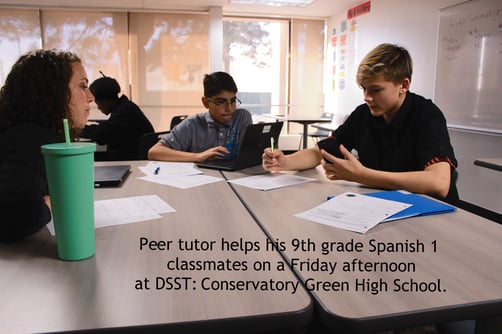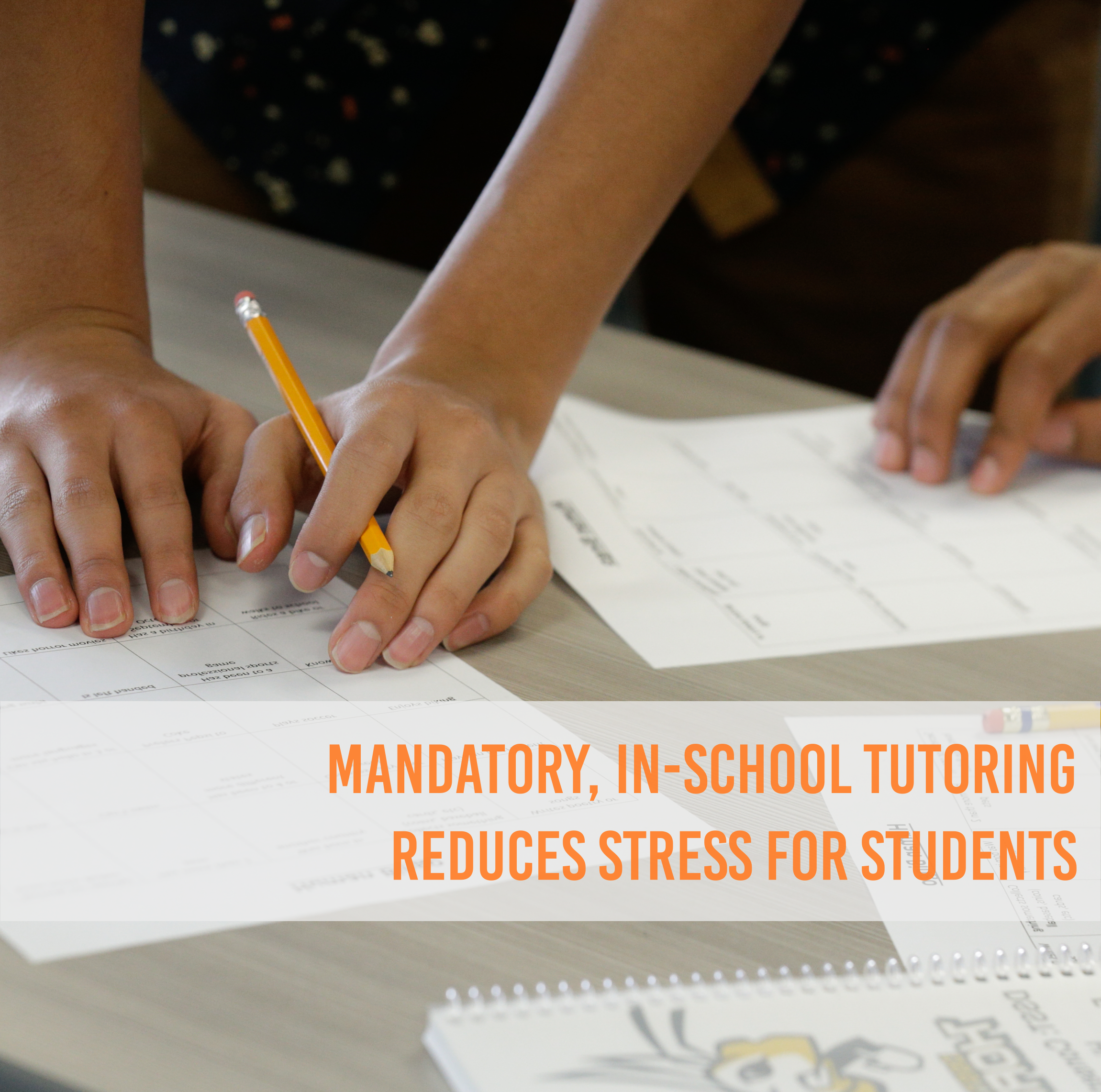Mandatory, in-school tutoring reduces stress for students
Falling behind in middle or high school can feel like falling into a hole that deepens as time passes. One misunderstood lesson can easily lead to a failed quiz or exam, a failing grade and missing credits. With delayed or even lost hopes for graduation, low academic performance can lead to frustration and unhappiness that negatively redefines the entire school experience.
While tutoring is traditionally perceived as “extra” academic help for families who can afford it, some schools use frequent, no-cost and mandatory in-school tutoring as a way to support students who need help. Tutoring on a regular basis, such as once or twice weekly, can greatly reduce a student’s stress, anxiety and low self-esteem involved with earning low grades. More importantly, regular tutoring improves student long-term study habits, their overall school performance and likelihood for graduation.
More and more small schools are offering no-cost mandatory weekly subject-focused interventions. In these weekly sessions, both teachers and peer tutors meet with students who need extra support. A student can be assigned mandatory tutoring if a teacher notices during the week that they have missed a concept or performed particularly low on an assessment. Held directly after school, tutoring is mandatory for some students, many others opt-in voluntarily to sharpen their skills.
Struggling students may argue that they do not need extra help if there is not an exam imminent, butod educators know that infrequent exams do not sufficiently track or support students’ learning along the way. Teachers that regularly track student’s progress from daily classwork, oral examinations, daily and weekly quizzes, and exams are much more likely to identify students who need the extra help. With more grades, students, too, are likely to notice that they need the help as well. The extra couple of hours spent after school can also save students the unnerving experience of cramming for a test at the end of a semester.
With in-school tutoring, as opposed to external service providers, students pick up exactly where they left off in the classroom. Teachers review material that was recently taught, quickly identify misunderstandings, and re-teach missing rungs of the ladder. Students feel the satisfaction of demonstrating learning one-on-one with their teacher and are ready for their homework that night and a new day of learning tomorrow.
In many instances, both teachers and peers are present to support struggling students in in-school tutoring sessions. Often, teachers can request academically strong students to tutor their peers after school, and those students are excited by this opportunity.
The few hours of extra help is proving to be a great way to improve learning outcomes and reduce overall frustration for students and schools around the country. By maintaining extra after school support, more and more small schools are helping students regain their footing, while still keeping the classroom rigorous.

